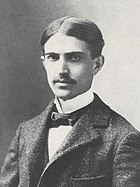Wikipedia:WikiProject Quality Article Improvement/TFA
TFA collected suggestions for Today's Featured article. Some requests were made before at WP:TFAR but reserved here for later.
As of April 2014, you can create nominations using a template, therefore this page is good for history and transition. Templates should be linked on the QAI main page. Planned requests can be found in Wikipedia:Today's featured article/requests/pending.
TFA[edit]
Not ready[edit]
USS Iowa (BB-61)[edit]
- Parked here to save the blurb; article still needs more work. -- Dianna (talk) 18:43, 20 September 2012 (UTC)
Eris (dwarf planet)[edit]
- first improve, --Gerda Arendt (talk) 10:09, 5 October 2012 (UTC)
8 January 2015[edit]
Stephen Hawking[edit]
no FA
9 April 2015[edit]
no FA
Jenna Jameson is an American entrepreneur and pornographic actress, who has been called the world's most famous adult-entertainment performer and "The Queen of Porn". She started acting in erotic videos in 1993 after having worked as a stripper and glamour model. By 1996, she had won the "top newcomer" award from each of the three major adult movie organizations. She has since won more than 20 adult video awards, and has been inducted into both the X-Rated Critics Organization (XRCO) and Adult Video News (AVN) Halls of Fame. Jameson founded the adult-entertainment company ClubJenna in 2000 with Jay Grdina, whom she later married and divorced. Initially a single website, this business expanded into managing similar websites of other stars and began producing sexually explicit videos in 2001. The first such movie, Briana Loves Jenna (with Briana Banks), was named at the 2003 AVN Awards as the best-selling and best-renting pornographic title for 2002. By 2005, ClubJenna had revenues of US$30 million with profits estimated at half that. Advertisements for her site and films, often bearing her picture, have towered on a 48-foot-tall billboard in New York City's Times Square.
(Full article...)Examples of free style[edit]
Reception history of Jane Austen[edit]
This article appeared as TFA on 28 January 2013.
The reception history of Jane Austen follows a path from modest fame to wild popularity; her novels are both the subject of intense scholarly study and the centre of a diverse fan culture. Jane Austen, the author of such works as Pride and Prejudice (1813) and Emma (1815), has become one of the best-known and widely read novelists in the English language. During her lifetime, Austen's novels brought her little personal fame; like many women writers, she chose to publish anonymously and it was only among members of the aristocracy that her authorship was an open secret. At the time they were published, Austen's works were considered fashionable by members of high society but received few positive reviews. By the mid-19th century, her novels were admired by members of the literary elite who viewed their appreciation of her works as a mark of cultivation. By the turn of the 20th century, competing groups had sprung up—some to worship her and some to defend her from the "teeming masses"—but all claiming to be the true Janeites, or those who properly appreciated Austen. It was not until the 1940s that Austen was widely accepted in academia as a "great English novelist". The second half of the 20th century saw a proliferation of Austen scholarship, which explored numerous aspects of her works: artistic, ideological, and historical. As of the early 21st century, Austen fandom supports an industry of printed sequels and prequels as well as television and film adaptations, which started with the 1940 Pride and Prejudice and evolved to include the 2004 Bollywood-style production Bride and Prejudice. (more ...)
Stephen Crane[edit]
This article appeared as TFA on 5 June 2013.





